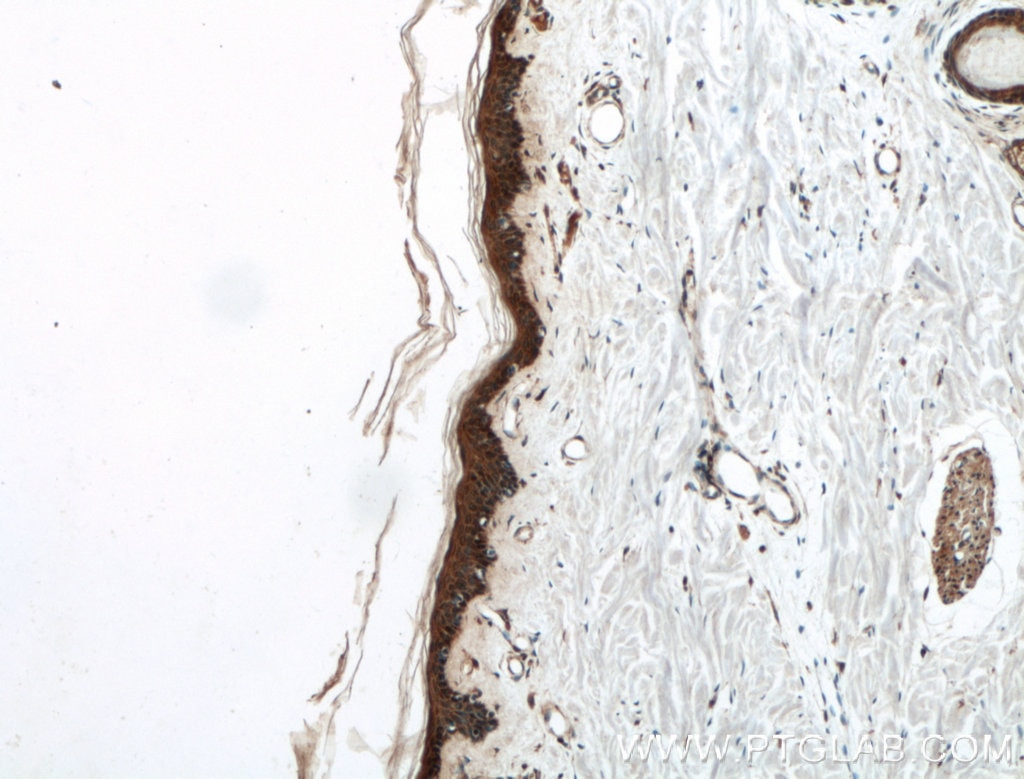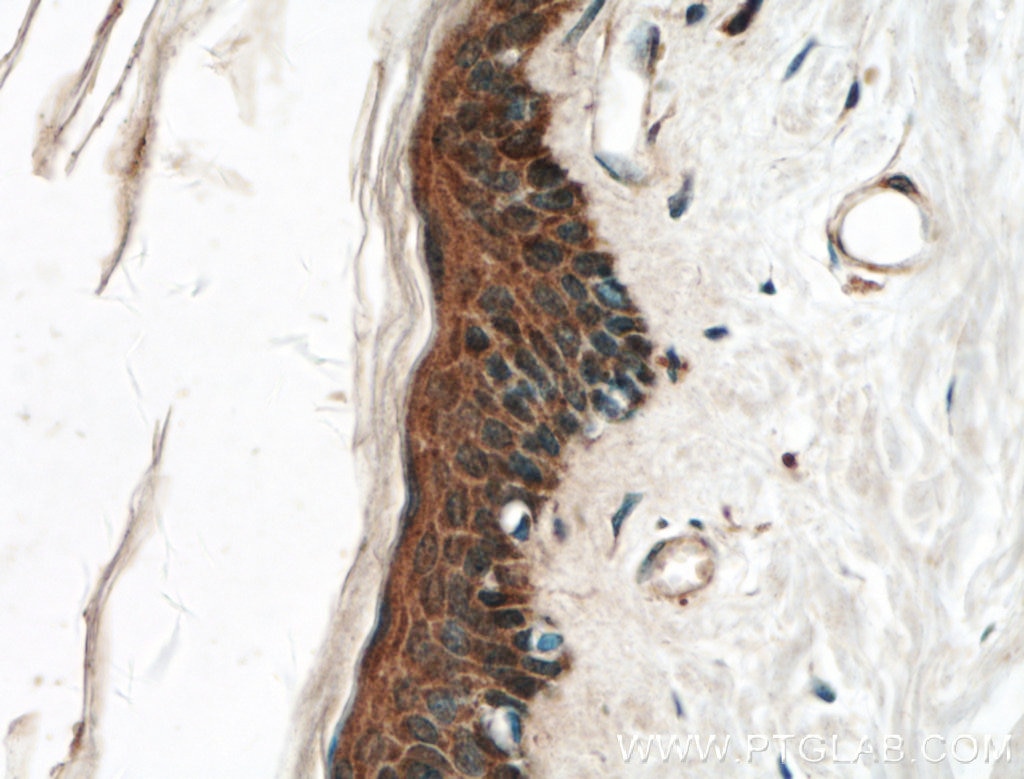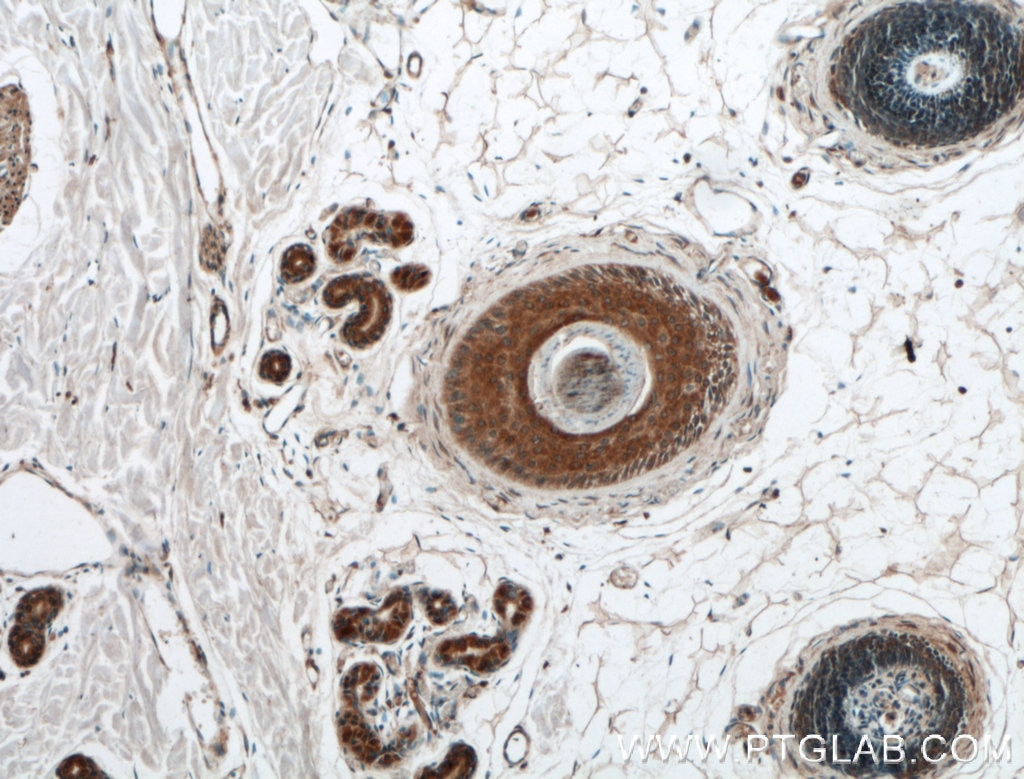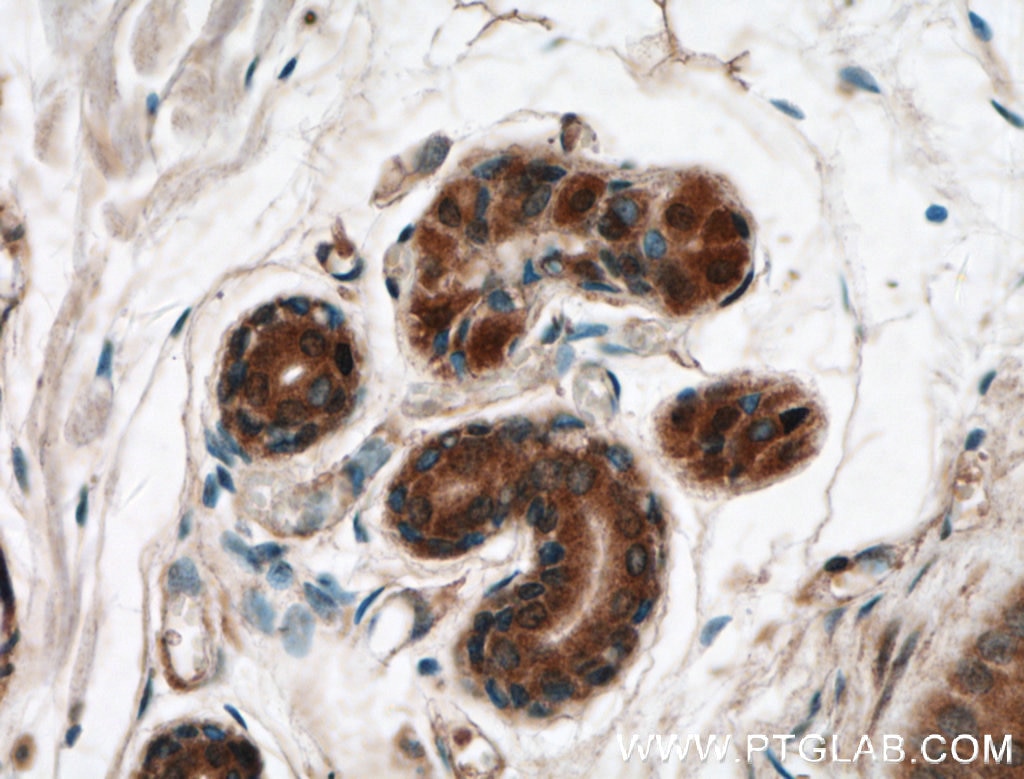EGF Polyklonaler Antikörper
EGF Polyklonal Antikörper für IHC, ELISA
Wirt / Isotyp
Kaninchen / IgG
Getestete Reaktivität
human
Anwendung
WB, IHC, ELISA
Konjugation
Unkonjugiert
Kat-Nr. : 27141-1-AP
Synonyme
Geprüfte Anwendungen
| Erfolgreiche Detektion in IHC | humanes Hautgewebe Hinweis: Antigendemaskierung mit TE-Puffer pH 9,0 empfohlen. (*) Wahlweise kann die Antigendemaskierung auch mit Citratpuffer pH 6,0 erfolgen. |
Empfohlene Verdünnung
| Anwendung | Verdünnung |
|---|---|
| Immunhistochemie (IHC) | IHC : 1:50-1:500 |
| It is recommended that this reagent should be titrated in each testing system to obtain optimal results. | |
| Sample-dependent, check data in validation data gallery | |
Veröffentlichte Anwendungen
| WB | See 4 publications below |
| IHC | See 2 publications below |
Produktinformation
27141-1-AP bindet in WB, IHC, ELISA EGF und zeigt Reaktivität mit human
| Getestete Reaktivität | human |
| In Publikationen genannte Reaktivität | human |
| Wirt / Isotyp | Kaninchen / IgG |
| Klonalität | Polyklonal |
| Typ | Antikörper |
| Immunogen | EGF fusion protein Ag25997 |
| Vollständiger Name | epidermal growth factor (beta-urogastrone) |
| Berechnetes Molekulargewicht | 1207 aa, 134 kDa |
| GenBank-Zugangsnummer | BC093731 |
| Gene symbol | EGF |
| Gene ID (NCBI) | 1950 |
| Konjugation | Unkonjugiert |
| Form | Liquid |
| Reinigungsmethode | Antigen-Affinitätsreinigung |
| Lagerungspuffer | PBS with 0.02% sodium azide and 50% glycerol |
| Lagerungsbedingungen | Bei -20°C lagern. Nach dem Versand ein Jahr lang stabil Aliquotieren ist bei -20oC Lagerung nicht notwendig. 20ul Größen enthalten 0,1% BSA. |
Hintergrundinformationen
Epidermal Growth Factor (EGF) is a type of mitogenic factor that stimulates the proliferation of various cells, including epithelial cells and fibroblasts. It is a small peptide composed of 53 amino acids with a molecular weight of approximately 6,000 Daltons. EGF contains three disulfide bonds, which contribute to its stability under acidic and high-temperature conditions. Human EGF is synthesized as transmembrane precursor proteins (1207 amino acids), which are proteolytically cleaved to generate the 54 amino acid mature EGF. EGF plays a crucial role in regulating cell growth, proliferation, and differentiation. When EGF binds to its receptor (EGFR), it activates intracellular signaling pathways that lead to DNA synthesis and cell proliferation. EGF is naturally present in various tissues and body fluids, including saliva, urine, and milk. It is primarily synthesized in the submandibular glands and duodenum.
Protokolle
| PRODUKTSPEZIFISCHE PROTOKOLLE | |
|---|---|
| IHC protocol for EGF antibody 27141-1-AP | Protokoll herunterladenl |
| STANDARD-PROTOKOLLE | |
|---|---|
| Klicken Sie hier, um unsere Standardprotokolle anzuzeigen |
Publikationen
| Species | Application | Title |
|---|---|---|
Elife METTL3 promotes homologous recombination repair and modulates chemotherapeutic response in breast cancer by regulating the EGF/RAD51 axis. | ||
Genes (Basel) Evolutionary and Association Analysis of Buffalo FABP Family Genes Reveal Their Potential Role in Milk Performance. | ||
J Ethnopharmacol Proteomics analysis of tumor exosomes reveals vital pathways of Jinfukang inhibiting circulating tumor cells metastasis in lung cancer. | ||
Int J Exp Pathol Clinicopathological features and immunophenotype of Silva pattern system in endocervical adenocarcinoma | ||
Evid Based Complement Alternat Med Evodiamine Inhibits Gastric Cancer Cell Proliferation via PTEN-Mediated EGF/PI3K Signaling Pathway. | ||
ACS Appl Mater Interfaces Paper/PMMA Hybrid 3D Cell Culture Microfluidic Platform for the Study of Cellular Crosstalk |





